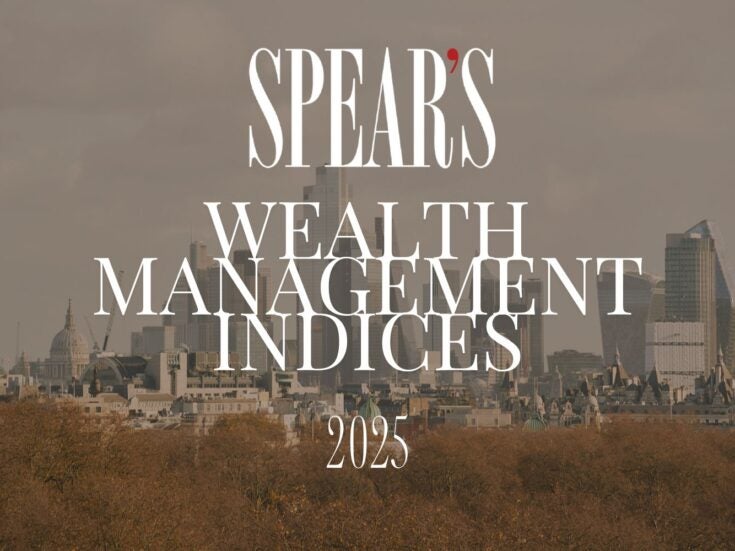
Desperate times call for desperate measures, up to and including borrowing money from your friends. William Cash on the dos, don’ts — and alternatives.
Today in the UK, even with a good credit history, London’s upwardly mobile, Porsche Cayenne-driving, Prada-wearing, Notting Hill, Knightsbridge, Chelsea classes are finding themselves being turned down for mortgages and loans all over town. As a result many – especially if their leveraged house in Chepstow Villas is about to be seized because they have lost their £450,000-a-year equities job at Lehman’s – are having to swallow their pride and pick up the phone to call their friends (rather than their bank managers) for a private loan.
But what are the rules of engagement for borrowing money from friends these days? Is it still a social taboo, or is it just practical in a distressed financial climate? The first thing to say is that the worst possible people to turn to for a loan are professional bankers, especially investment bankers. The latter — however rich — are socially programmed to see credit crunches and economic downturns as joyous Darwinian feasts that are to be wallowed in so as to inflict maximum pain on the weaker party.
When I recently asked a wealthy and highly successful Euro-society friend who is one of London’s top private-equity players whether he would lend to a friend today, he explained his thinking on the subject. ‘Cash is king at the moment,’ he told me. ‘If a good friend needs a few thousand, I’ll just give it to him — no questions asked. I’ve learnt that is always the best way. My firm has a £50 million credit facility with a bank that expires at the end of the year and although we don’t need the money now, I will draw this figure down before December because nobody is giving that sort of credit today and £50 million can buy you an awful lot of discounted opportunity in the market.
‘Today, it just makes no sense to lend a friend, say, £1 million, even if they offer you a Basquiat as collateral as well as paying 8 per cent interest, because £1 million in cash is worth so much more than that today. Look at the debt market, look at the discount bonds are trading at. It’s a blood bath right now and it’s so much fun to have cash. We’ll be buying back our own debt from our banks in firms we own. The banks need cash, so in some cases we can buy back our debt at 50p in the pound. I don’t have any moral problem with this, as they loaned their money to other businesses who then outbid us for firms, so I am not exactly in a charitable mood.’
One bank that is very happy to continue lending to its super-wealthy clients during the credit crunch is J.P. Morgan Private Bank, which confirms that it has recently seen ‘very strong growth’ in its private lending activities. ‘Many of our new requests for loans have come from clients who have been dissatisfied with the way they have been treated by their banks during the credit crunch,’ says Andrew Cryer, head of capital markets at the bank’s London offices.
‘Clients have been keen to transfer their assets to us and at the same time to ask us to take over their existing loans. Some of our clients have seen this period of weakening asset prices as a buying opportunity. As a result, we have seen more requests than usual to help our clients build significant positions.’ The last line is code for an increase in personal credit applications to help super-wealthy clients seize on the ‘blood-bath’ opportunities outlined by my private-equity friend.
J.P. Morgan has also seen an increase in co-investment deals within family circles and between friends, or in providing seed capital in start-up funds or entrepreneurial activities created by former colleagues. ‘These opportunities are now possibly even more attractive to certain clients with a higher risk appetite, given the type of returns that can be obtained from traditional financial investments,’ Cryer told me. In other words, so long as you are rich enough, we’re happy to help you with liquidity now to make you even richer (and an even better client) in the future.
One of London’s best-connected private bankers is Austrian Heinrich Adami, UK head of Pictet private bank, one of Switzerland’s most exclusive banks, where his clients typically have accounts in excess of £10 million. Adami says the ultra-wealthy will always lend to friends, regardless of credit conditions, but he thinks that lending and borrowing in ‘meaningful’ amounts — a seven-figure-plus sum — without banks is still unusual. ‘In times like this, if a rich friend goes to another rich friend and asks to borrow £5 million, I doubt they would oblige,’ he says. ‘However good a friend it is, the credit crunch makes large loans between friends generally not a good idea.’
If you need a large loan fast, and you have the secured assets to offer as collateral, there are few banks who can give you access to cash faster than Hoare & Co, the only bank in London that offers a bedroom and butler (and a David Linley-designed private dining room) to clients whose wives turf them out of the marital home. When they need cash, Hoare’s customers tend to be entrepreneurial. Instead of borrowing from Hoare’s, one customer recently decided that he would prefer to raise £200,000 from a pawnbroker.
When I asked Alexander Hoare, CEO of Hoare’s, if the bank had changed its criteria for lending at his venerable private bank, he said: ‘We remain keen to lend, but the customers are de-leveraging faster than they incur fresh facilities. This has been going on for two years. Before then our loan book was growing for decades at about the same speed as money supply. It stopped growing quite suddenly, through no change of ours. We anticipate it will accelerate again as other lenders rein in over months/years to come.’
But for those who don’t have an exclusive Hoare’s account, another solution today is to try online. Zopa.com is a revolutionary new online ‘loan community’ that cuts out the banking middle men and allows people with money to give private credit to people like a Scottish friend of mine who needed cash fast to save his home. All you need is a good credit record and a provable identity.
As Zopa’s website states: ‘We make sure that everyone that takes out a loan from Zopa lenders is an honest and reliable individual — you know, the sort of person you’d happily leave your bag with while you went to the bathroom.’ Lenders enter into a legally binding contract with their respective borrowers. Zopa manages the monthly repayments and if somebody defaults on their payments, the same credit recovery kicks in as used by other loan firms (ie late-night calls to your mobile). Zopa makes a profit by charging lenders and borrowers a 0.5 per cent fee.
So successful has Zopa become that Alexander Hoare, whose family has been banking and lending since 1672, admits to becoming a user personally a year or so ago. ‘I enjoy lending to a wide range of people at a rate that fully justifies the risk and is much more remunerative than lending to any solvent bank,’ he says. However, he believes it will never replace banks for a host of reasons. ‘It is supplementary,’ he stresses.
Anybody who is constantly being tapped for loans from friends should bear in mind the advice of journalist Anthony Haden-Guest (model for the Brit-New York tabloid hack Peter Fallow in Tom Wolfe’s The Bonfire of the Vanities, who raised borrowing money from American work colleagues to an art form): ‘Just say you don’t have the money.’







